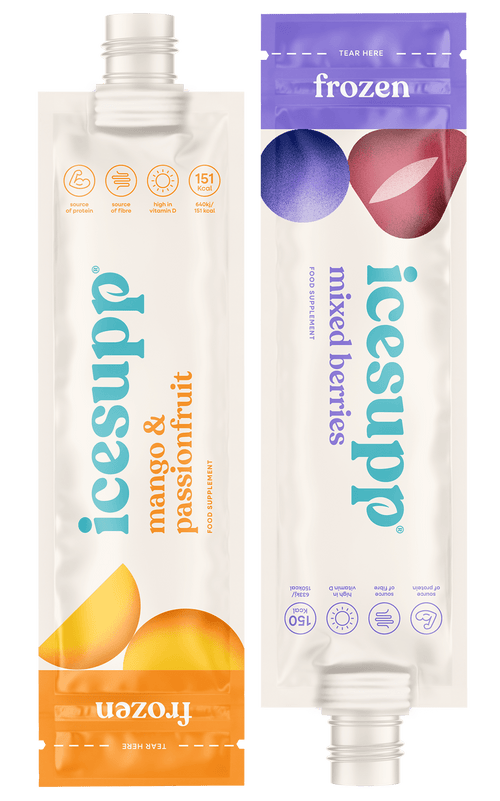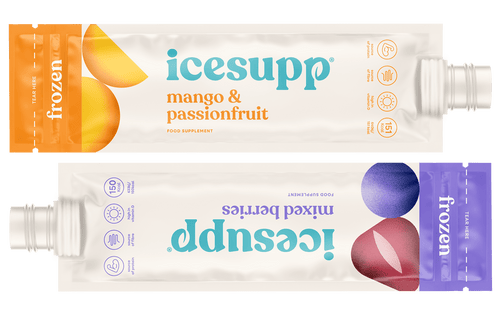Sugars and sweeteners are a hot topic in the world of nutrition. From a curiosity about natural sweeteners to concerns about the long term impact of sugars, we’ve put some of our most commonly asked questions to our in-house dietitian.
Got a question about diet, nutrition and wellness? Leave a comment over on our Instagram.
What is the difference between sugars and sweeteners?
We all know that there are differences between sugars and sweeteners, but over the years there have been some online myths that have caused confusion. So, what’s actually the difference between sugar and sweetener?
Our dietitian’s take:
Sugar is a natural carbohydrate, like sucrose, found in a wide variety of foods, while sweeteners are man-made substances that add sweetness.
Sugar is calorically dense (4kcal/g) and it does impact blood sugar levels. Sweeteners, on the other hand, are often low-calorie and are metabolised in a way that does not affect blood sugar levels.
Are sweeteners a healthier alternative to sugar?
The man-made sweetener is often lower in calories, but is it better for you?
Our dietitian’s take:
Whether you believe artificial sweeteners are healthy or not can completely depend on the reason you are taking them.
For example, sweeteners are better for our teeth and could be a useful tool for people managing their diabetes, because they don’t impact blood sugar levels.
Whilst they’re lower calorie, the World Health Organisation (WHO) suggests the research linking sweeteners and weight loss is very mixed so that’s something to be aware of too. This is because consuming sweeteners still increases the overall sweetness of the diet, which for some, can be counter intuitive if trying to lose weight.
Alternatively, If someone has or is at risk of malnutrition, the calories that sugar provides can be a valuable way to help maintain someone’s weight. Although increasing sugar intake isn’t the only way you can increase the calories and it is advised to eat a variety of nourishing foods as part of a balanced diet for weight gain and weight maintenance.
Is it better to consume sugar from natural sources?
Are natural sugars actually better for you?
Our dietitian’s take:
Sugars found in natural sources such as in honey, syrups, smoothies and fruit juices occur naturally as opposed to sugars that have been added by a food manufacturer. Both are considered “free sugars" and are metabolised in the body in the same way.
The biggest difference is that sugars found in natural foods, like fruit, often come with additional health benefits such as added fibre, vitamins and minerals.
Plant based iced sorbet that is enriched with key vitamins, minerals and protein with a boost of quality calories – and most importantly, it’s tasty! Plant based iced sorbet that is enriched with key vitamins, minerals and protein with a boost of quality calories – and most importantly, it’s tasty!Get the nutrition your body needs


Are sweeteners dangerous and should we cut them out?
Should sweeteners be something we look to cut out of our diet, are they dangerous?
Our dietitian’s take:
Artificial sweeteners, such as aspartame, go under strict safety assessments by the European Food Safety Authority (EFSA).
EFSA have stated that artificial sweeteners are not harmful within daily limits and this is much more than most people can have in one day.
For example, for aspartame, the daily limit is the equivalent of about 12 cans of a diet soft drink.
Saying this, cutting down on sugar shouldn’t be an excuse to consume sweeteners in excess.
The bottom line is that the bigger picture should be taken into account when deciding whether to consume sugar or sweeteners and it depends on your individual nutritional goals. If you have any concerns about your dietary intake, you should consult your healthcare professionals.
References:
1. WHO Guidelines: Use of non-sugar sweeteners.
2. British Heart Foundation: Are artificial sweeteners better than sugar?
This blog has been written by Corrine Toyn, Registered Dietitian & Marketing Consultant.



